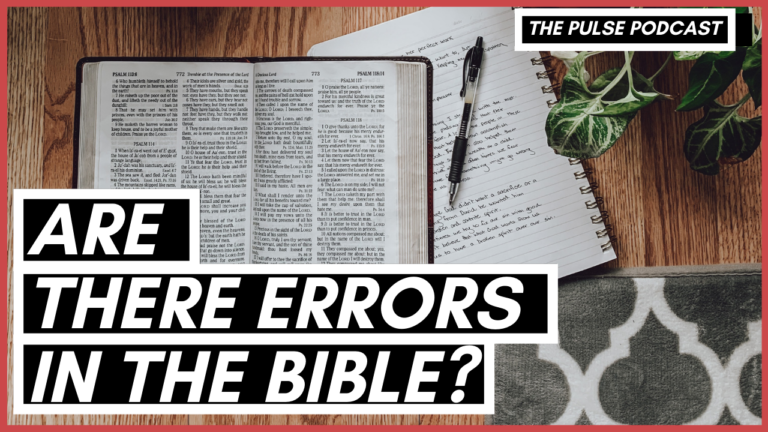Is the Bible one or divided? Is it just a book filled with many stories of different people? Can we read just one Testament of the Bible and understand what God is saying? Or does the Bible have to be read as a whole for full understanding?
When reading the Bible, there are two things that constantly appear. One is the fallibility of man, and the other is the love and infallibility of God. From the very beginning, we see that God does not make mistakes and that everything God does is good.
“Then God saw everything that He had made, and indeed it was very good.”
(Genesis 1:31)
Yet, from the moment God made man, we see the flawed nature of man.
The Bible in its entirety shows the journey of the fall of man from a place of perfect communion with God (the Garden of Eden), to the separation of man from that perfect communion, and finally a marvelous show of God’s love in creating a way for man to attain what we had once lost.
From Abraham to Moses, to David, and then finally to Jesus, each individual’s character was tested, tried, and refined. Yet only JESUS is the true hallmark and standard for the attainment of perfection that the Bible teaches.
The Old Testament shows the nature of those chosen by God. It also shows the character traits within them that allowed them to have an intimate relationship with God. It shows the key traits in these individuals that enabled them to be foreshadowers of Jesus. Pale impressions yet powerful examples of the traits that Jesus set as a standard for us. The Old Testament also prophesies the redemption of man through Jesus.
Hi reader, thank you for clicking on this article. As a charity, it is due to the donation from individuals that allow us to share this article with you for free! However the truth is, less than 1% of our readers donate and in order for us to keep on going, we need your help. If you donate just £2 a month, you can help Our God Given mission keep thriving. To donate, click here.

What’s in the Old Testament?
The Old Testament is full of many lessons that can be applied to our daily lives, but it is also full of prophecies showing that a Saviour is coming. It builds the hope for a future where peace and righteousness reign.
Behold the days come, saith the LORD, that I will raise unto David a righteous Branch, and a King shall reign and prosper, and shall execute judgment and justice in the earth. In his days Judah shall be saved, and Israel shall dwell safely: and this is his name whereby he shall be called, THE LORD OUR RIGHTEOUSNESS.”
(Jeremiah 23:5-6)
The Old Testament is full of prophets put in place to hold the fort for the soon coming King who would bring redemption and salvation, but none of them could do what Jesus did.
Whereas Abraham was a man of faith (Galatians 3:6; Genesis 15:6), he had many faults and made errors. Moses was deemed the meekest man on earth in his time (Numbers 12:3), but he never entered the Promised Land because of his disobedience. Although David was a man after God’s heart (Acts 13:22), he was a man that sinned and suffered the consequences.
Although these men had intimate relationships with God and were used powerfully by God, they were still pale imitations of what the Spirit had been foretelling through the prophets.
Even David himself prophesies the coming and sufferings of Jesus several times (Psalm 110:1; Psalm 22:1-2; Psalm 2:1-6).
Jesus was the lesson and the hope of the Old Testament.
For unto us a Child is born, unto us a Son is given; and the government will be upon His shoulder. And His name will be called Wonderful, Counselor, Mighty God, Everlasting Father, Prince of Peace…
(Isaiah9:6)
What’s in the New Testament?
While the prophets in the Old Testament tried to attain perfection through the law, the New Testament shows us the true way to salvation and perfection.
Just as the Old Testament prophets had been prophesying, Jesus was born and became the one true way to salvation.
The New Testament teaches us that through Jesus Christ, whose blood was shed for our sins, we are forgiven, (Hebrews 9:12-14; Matthew 26:28). It also teaches us that although there is victory in becoming born again, it is only the beginning.
Jesus is the Great High Priest and the ultimate standard to follow in order to return to the place of perfect communion with God, as mankind was in the Garden of Eden (Genesis 2:8).
“Till we all come in the unity of the faith, and of the knowledge of the Son of God, unto a perfect man, unto the measure of the stature of the fulness of Christ.”
(Ephesians 4:13)
God came as man, went through every emotion and temptation known to man, overcame it all, and became an example for us. He showed us His weaknesses and how He overcame those times (through the word and prayer). Jesus taught us how to pray and showed the ultimate example of love. He did this by sacrificing himself for our sins, so we may know what true and perfect love is.
Is the Bible one?
The Bible cannot be fully understood or appreciated unless it is read as a whole. The Bible should not be divided when we study it. This is because the Bible as one shows us the way to true redemption. Both the Old and the New Testament teach us the same lessons; love God, love people, obey God, be in right standing with God. The only difference between the two is the coming of Jesus. While the Old Testament speaks on the coming of Jesus, The New Testament manifests Jesus and we gain our true salvation through the cross, after Jesus’ coming.
Because of Jesus, we don’t have to sacrifice animals to gain forgiveness, as was required in the Old Testament. We are now able to enter into perfect communion with God. The Bible shows us a true and complete example of how to live righteously. We are able to love and live the right way through grace until we become refined and “attain the stature of the fulness of Christ”.












